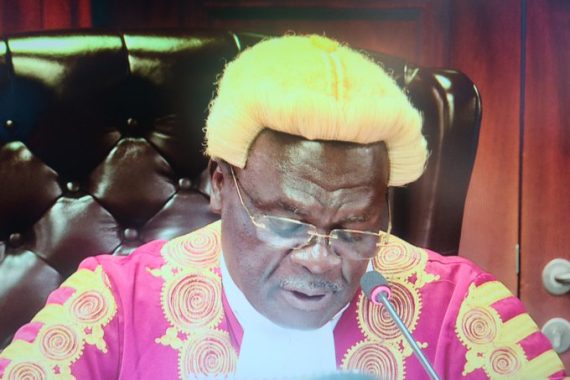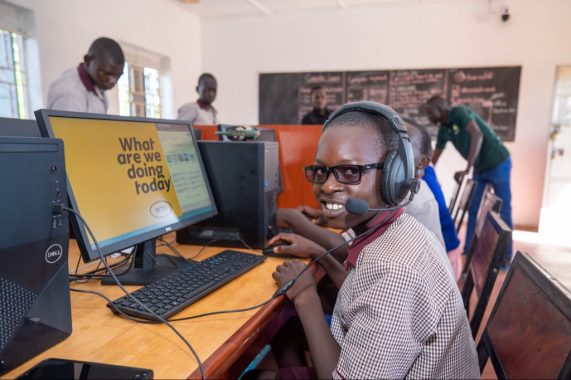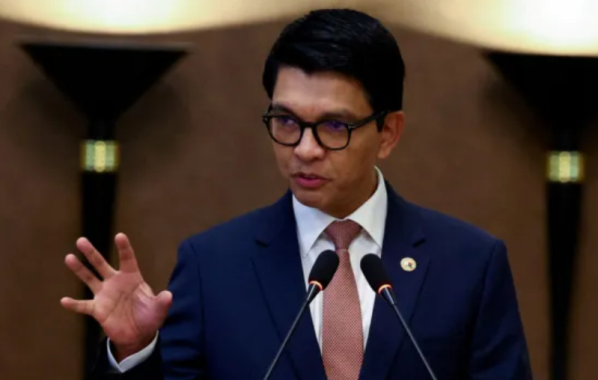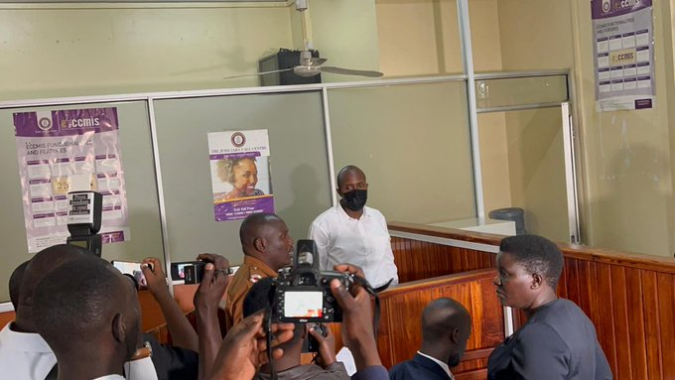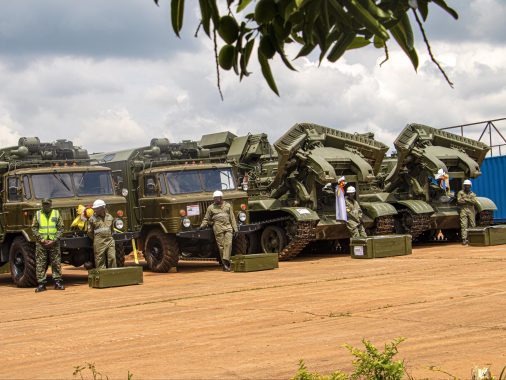The Supreme Court, led by Chief Justice Alfonse Owiny-Dollo, has delivered a landmark judgment declaring that civilians should not be tried in military courts.
The five-member panel of Supreme Court justices unanimously agreed that the trial of civilians in military courts violates fundamental rights enshrined in the Constitution of Uganda.
This effectively halts all ongoing civilian trials in the General Court Martial (GCM) and orders their immediate transfer to civilian courts with competent jurisdiction.
The ruling, delivered in Constitutional Appeal No. 2 of 2021: Attorney General v. Hon. Michael Kabaziguruka, originates from a petition by former Nakawa MP Michael Kabaziguruka, who challenged his prosecution before the GCM on treachery charges. In 2021, the Constitutional Court ruled in his favor, declaring such trials unconstitutional, a decision the government appealed to the Supreme Court.
In delivering the majority decision, Chief Justice Owiny-Dollo stressed that military courts are not designed to handle civilian cases.
“The military court system is a specialized tribunal established to maintain discipline within the ranks of the armed forces. It was never intended to replace or parallel the civilian judiciary in handling ordinary criminal cases. Subjecting civilians to military courts violates fundamental constitutional guarantees, including the right to a fair trial,” Owiny-Dollo stated.
He further emphasized that the Constitution provides for the separation of powers between civilian and military judicial institutions.
“No arm of government, including the military, should usurp the judicial mandate of civilian courts. The General Court Martial, as currently structured, lacks the necessary independence and impartiality to try civilians,“ he added.
Chief Justice Owiny-Dollo affirmed that the Summary Trial Authority (STA) and the Unit Disciplinary Committee (UDC) are lawfully established under Sections 191 & 192 (now Sections 189 & 190), and Section 195 (now Section 193) of the UPDF Act as military tribunals. However, their jurisdiction is strictly confined to military discipline.
The Supreme Court struck down Sections 179(1) & (2) (now Sections 177(1) & (2)) of the UPDF Act, which granted military courts the power to try capital offenses.
“Granting subordinate military courts jurisdiction over capital offenses contravenes Articles 129(1)(d) and 126(1) of the Constitution,” the Chief Justice ruled.
He further stated that court found that the UPDF Act does not contain adequate constitutional safeguards to ensure the independence and impartiality of military courts.
“The trial procedure in the General Court Martial, the Division Court Martial, and the Court Martial Appeal Court lacks the constitutional guarantees necessary for fair hearings,” ruled the Chief Justice, citing Articles 21, 28(1), 44(c), and 128(1) of the Constitution.
The five-member panel of justices issued a series of critical declarations that will reshape Uganda’s judicial landscape:
Justice Monica Mugenyi ruled that the General Court Martial lacks the independence and impartiality required for fair trials, calling Section 117(1)(h) of the UPDF Act “vague and unconstitutional.” She further urged Parliament to amend the law to clearly define the scope of military jurisdiction.
Justice Percy Night Tuhaise emphasized that the prosecution of all criminal offenses falls exclusively under the mandate of the Director of Public Prosecutions (DPP), not the military courts. She declared that the GCM is “incompetent to handle judicial matters involving civilians.”
Justice Elizabeth Musoke stressed that the General Court Martial’s jurisdiction is limited to military disciplinary issues.
“The role of military courts should be restricted to enforcing discipline within the Uganda People’s Defence Forces. Their jurisdiction should not extend to civilians under any circumstances.” she stated
Justice Catherine Bamugemereire delivered a firm directive, ordering an immediate halt to all civilian trials in military courts and their transfer to the High Court and other competent civilian courts.
This ruling has far-reaching consequences, especially for high-profile political figures and activists who have been tried before the military tribunal. Among those affected is opposition leader Dr. Kizza Besigye, who is currently facing treachery charges in the GCM.
Speaking outside the Supreme Court premises, Besigye’s lawyer Erias Lukwago couldn’t hold back his joy, considering his client was scheduled to appear before the GCM on Monday next week. He however stated that in his understanding, the court has been disbanded until several sections of the UPDF ACT can be amended not to breach the Constitution.
Summary of Supreme Court Orders
Civilians can no longer be tried in military courts.
All ongoing civilian cases before the GCM must be transferred to civilian courts immediately.
The General Court Martial remains a recognized court, but only for military personnel.
Sections of the UPDF Act that granted military courts jurisdiction over civilians are unconstitutional.
Past convictions remain valid unless they are already under appeal.
Pending trials involving UPDF personnel on civilian charges must also be moved to civilian courts.
Michael Kabaziguruka wins the case, and the government is to pay his legal costs.




